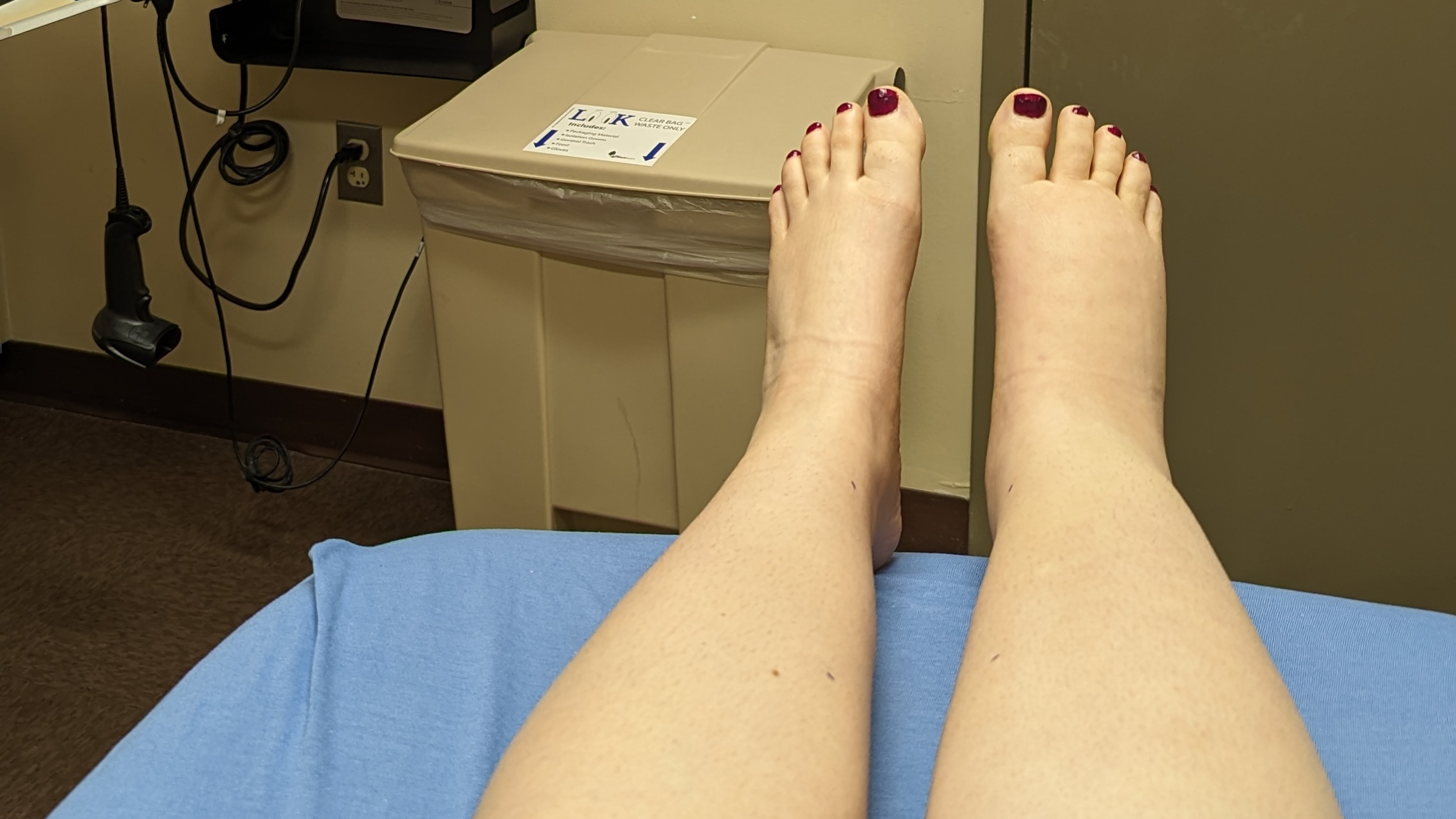There’s always something going on in the world of lymphedema and lymphatic research! It can be a lot to keep up with, so here’s a digest of some of the latest headlines from the past month carefully curated to keep you in the lymphie loop.
“A Genetic Approach to the Classification of Primary Lymphoedema and Lymphatic Malformations”
A recent article by Dr. Bernard Ho, Dr. Kristiana Gordon, and Professor Peter Mortimer of the Department of Dermatology and Lymphovascular Medicine at St. George’s Hospital outlines the importance of a genetic approach to the classification of primary lymphedema and lymphatic malformations:
“The discovery of causal genes for lymphoedema has enabled a new approach to the classification of primary lymphoedema and lymphatic malformations […] Only through understanding mechanisms of disease are we likely to develop better treatments.”
READ THE FULL ARTICLE AT THE EUROPEAN JOURNAL OF VASCULAR AND ENDOVASCULAR SURGERY.
“Anti-inflammatory drug effective for treating lymphedema symptoms”
Two early-stage clinical trials led by Stanford researchers have shown that ketoprofen can improve skin damage in patients with lymphedema.
“So many patients have gone through decades being told there is no medical treatment,” said Stanley Rockson, MD, professor of cardiovascular medicine at Stanford.
“Now, they can go to a drugstore and get a pill with a doctor’s prescription. This new treatment doesn’t cure lymphedema, but our studies show it has the capacity to make the illness more livable, more workable.”
READ MORE AT THE STANFORD MEDICINE NEWS CENTER; ALSO CHECK OUT “KETOPROFEN FOR LYMPHEDEMA? PROCEED WITH CAUTION” FROM TORONTO PHYSIOTHERAPY.
“Lymphatic system, key player in human health”
Sathish Srinivasan, Ph.D., and Boksik Cha, Ph.D., at Oklahoma Medical Research Foundation previously discovered that a particular pathway — known as the Wnt signaling pathway — regulates the development of the human lymphatic vascular system. In new research, published in the journal Cell Reports, they’ve found “the nuts and bolts of this important pathway.”
“We have identified the signaling molecules that activate this pathway,” said Srinivasan. “We also have learned which cells produce the signaling molecules, how they are sensed by the cells and how they are used in lymphatic development.”
READ THE FULL ARTICLE AT SCIENCEDAILY.
“Dr. McLaughlin on Lymphedema in Breast Cancer”
Sara McLaughlin, MD, professor of surgery, Mayo Clinic, discusses the frequency that lymphedema appears in patients with breast cancer, as well as addresses the complications in identifying the condition following her presentation at the 2018 Lynn Sage Breast Cancer Symposium.
According to McLaughlin, lymphedema may be more common than is currently known in the field. This is because lymphedema does not develop until 3 to 5 years following their treatment. Moreover, most studies do not follow patients this far out, meaning it can often go unreported.
READ THE FULL ARTICLE AT ONCLIVE.
“The ULTRA (Ubenimex) Clinical Trial for lymphedema failed as expected – but there’s still hope”
Eiger BioPharmaceuticals published a press release announcing that their ULTRA Phase 2 clinical trial investigating Ubenimex for lymphedema did not achieve their endpoints, and that they would not be pursuing additional clinical trials at this time.
“I was thrilled that a pharmaceutical company decided to fund a clinical trial for lymphedema, and hopefully this will spur others to consider this untapped market,” writes Ryan Davey, PhD. “More importantly, the underlying animal research behind this trial is very well thought-out and exciting, and I’m certain the authors will continue down this road. The research is particularly exciting with respect to preventing symptom onset and/or progression.”
READ MORE AT TORONTO PHYSIOTHERAPY.
“Alberta positioned to become international leader in lymphatic disorder research thanks to $7 million in gifts”
The Dianne and Irving Kipnes Foundation announced a $5-million commitment to establish the Dianne and Irving Kipnes Chair in Lymphatic Disorders at the University of Alberta’s Faculty of Medicine & Dentistry; the University Hospital Foundation (UHF) and its community of donors have increased the total commitment to this chair to $7 million.
“We’re at the ground floor of this because there really is no substantial collection of knowledge about lymphatic disorders right now,” said Irving Kipnes.
“Because most people live with this disorder and it doesn’t kill them, they’re just told, ‘You’re a survivor. You should be thankful and good luck to you,’” said David Eisenstat, chair of the University of Alberta’s Department of Oncology. “It’s an underdog disorder. It’s not been front of mind in the academic world or in the clinical world. So, to me, this chair is a wonderful opportunity to raise awareness and to say, ‘This is important, so let’s focus on research towards improvements in diagnosis and clinical care.’”
READ THE FULL ARTICLE FROM THE UNIVERSITY OF ALBERTA.
“UVA Scientist Awarded $5.6M by NIH to Further Study Lymph System and Brain Connection”
Jonathan Kipnis, the researcher who discovered that lymphatic vessels are important mediators of the underlying molecular mechanism of multiple sclerosis, has received the prestigious Director’s Pioneer Award from the National Institutes of Health (NIH).
“This [award] is a wonderful recognition of the exciting work being done by Dr. Jonathan Kipnis,” said David S. Wilkes, MD, dean of University of Virginia’s School of Medicine. “He and his department are revolutionizing how we think about the brain, the immune system and the relationship between them. It is truly pioneering research, with dramatic potential to change how we view and treat neurological disease.”
READ MORE AT MULTIPLE SCLEROSIS NEWS TODAY.
Lymphatic filariasis news
Lymphatic filariasis (commonly known as elephantiasis) is a neglected tropical disease caused by parasitic infection to the lymphatic system. It is the leading cause of lymphedema worldwide: of the over 120 million people infected, 40 million are incapacitated or disfigured by the disease.
“VN eliminates lymphatic filariasis”
The World Health Organisation (WHO) has announced that Việt Nam has eliminated lymphatic filariasis as a public health problem:
“Lymphatic filariasis used to be endemic in several parts of Việt Nam, putting millions of people at risk”, said Minister of Health Nguyễn Thị Kim Tiến. “Thanks to decades of support from WHO and other development partners, we finally achieved our goal of ‘a Việt Nam free of lymphatic filariasis.’”
READ THE FULL ARTICLE AT VIỆT NAM NEWS.
“WHO validates 3 more countries for eliminating lymphatic filariasis”
The World Health Organization has congratulated three more countries in its Western Pacific Region for having eliminated lymphatic filariasis as a public health problem: Palau, Việt Nam, and Wallis and Futuna.
READ THE FULL ARTICLE FROM THE WORLD HEALTH ORGANIZATION.
“Racing to End Elephantiasis in India”
Sheela and Pratima Devi get up early. Traveling by foot, the healthcare workers go door-to-door, village-by-village through Northern India to spread awareness about elephantiasis.
Compressed news
- Professor John Boyages looks at how innovations at Macquarie University are helping to provide more personalized treatment for patients and improve survival rates: “Although several trials are ongoing in this area, many institutions around the world have started to ‘de-escalate’ therapy [for breast cancer],” he writes. “This means doing fewer axillary dissections (a surgical procedure to remove lymph nodes) but continuing to do a sentinel lymph node biopsy and tailored radiation therapy to reduce the incidence of complications such as lymphoedema.” [Macquarie University]
- New research shows promise in consulting with patients about lymphedema prior to surgery, and keeping a keen eye on its possible development after surgery: “The patients are seeing it earlier, they are reporting it earlier if something doesn’t seem right and they’re getting back in to see us,” says rehab specialist Nicole Reilley Dosey. “The good news is we’re not seeing those advanced stages. We’re catching it early enough that they’re not hitting stage two and stage three.” [Observer-Reporter]
- Sherry Hite, an occupational therapy lead in the Department of Rehabilitation Services at City of Hope, says the best treatment for patients with lymphedema is education: “Education needs to start early on and across disease groups that are impacted by lymphedema.” [Cure Today]
- Plastic surgeons typically perform lymph node transfers, sometimes in conjunction with breast reconstruction surgery: “It opens the doors for another treatment option for patients who have advanced stage lymphedema and no other treatment has worked for them,” said Dr. Gabriel Del Corral. [Baltimore Sun]
- New York Governor Andrew Cuomo signs groundbreaking LE patient education bill, authored by LE&RN: New York Governor Andrew Cuomo signed a lymphedema patient education bill mandating that the New York State Department of Health shall design an informational packet about lymphedema to be given to patients at high risk of developing lymphedema. [EIN News]
- Obesity increases risk for lymphedema and associated infections: “The more tissue you have, the more garbage your body makes, but if you think about it, (it puts pressure) on the veins, the arteries and the lymphatic tissue,” said Ginny Vincent, occupational therapist and certified lymphedema therapist at United Hospital Center’s United Rehab. [The Exponent Telegram]
- New therapies could treat tissue swelling that afflicts cancer surgery patients and others: That lymphedema might be curable “was unthinkable a few years ago,” says developmental biologist Guillermo Oliver of Northwestern University Feinberg School of Medicine in Chicago, Illinois. [ScienceMag]




Leave a Reply to Sr Janet WingertCancel reply